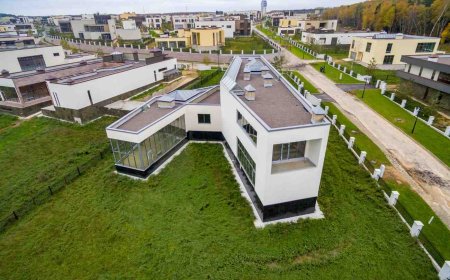China Hotel Market to Reach US$ 170.40 Billion by 2033, Driven by Tourism Growth and Premium Hospitality Demand
According to the latest report by Renub Research, the China Hotel Market is projected to grow from US$ 83.63 billion in 2024 to US$ 170.40 billion by 2033

Booming Domestic Travel, Digitalization, and Rising Disposable Incomes Fuel Hotel Industry in China
According to the latest report by Renub Research, the China Hotel Market is projected to grow from US$ 83.63 billion in 2024 to US$ 170.40 billion by 2033, expanding at a CAGR of 8.23% between 2025 and 2033. The sector is witnessing remarkable expansion due to rising domestic tourism, the growth of middle-class travelers, infrastructure development, and the rapid adoption of digital hospitality solutions across urban and tier-II cities.
As Chinas travel and tourism industry rebounds post-pandemic, the hospitality market is emerging as a key driver of economic growth. With millions of tourists returning to domestic destinations and an increasing number of international travelers entering China, the hotel sector is undergoing a transformation toward more tech-integrated, luxury-oriented, and experience-focused hospitality models.
Domestic Tourism Boom and Government Support Lead Market Expansion
China has emerged as one of the worlds largest domestic tourism markets, with a growing population eager to explore local destinations. Government initiatives like:
-
Culture and Tourism Integration,
-
Smart tourism cities,
-
Increased high-speed rail connectivity, and
-
Policies supporting private sector investment in hospitality infrastructure
have significantly boosted the demand for hotels in provinces such as Yunnan, Sichuan, Zhejiang, Hainan, and Guangdong.
Moreover, tier-II and tier-III cities are now experiencing an influx of development projects, including midscale and economy hotels, which cater to budget-conscious domestic travelers. As travel becomes more accessible to the mass population, hotel occupancy and revenue per available room (RevPAR) are expected to surge across the country.
Rising Middle Class and Demand for Premium Experiences
With the growth of the Chinese middle class, there has been a significant shift in consumer expectations for travel and accommodation. Todays Chinese traveler, both domestic and inbound, is more likely to seek:
-
Premium hospitality services,
-
Clean and sustainable accommodations,
-
Contactless check-in/check-out systems, and
-
Personalized experiences powered by AI and data analytics.
This trend is prompting hotel operators to upgrade their offerings, invest in smart room technologies, expand wellness and leisure amenities, and implement sustainable practices to attract loyalty-driven millennial and Gen Z customers.
Luxury and Boutique Hotels Gaining Traction
While economy and mid-tier hotels continue to dominate in terms of volume, luxury and boutique hotels are rapidly gaining ground in urban and resort areas. International brands such as Marriott, Hilton, Hyatt, Accor, and InterContinental, alongside top Chinese players like Huazhu, Jin Jiang, and BTG Homeinns, are focusing on:
-
Expanding their high-end portfolios,
-
Entering exclusive tourist zones,
-
Targeting elite clientele, and
-
Offering themed and personalized experiences.
Boutique hotels, in particular, are flourishing among young travelers who value authenticity, aesthetics, and digital conveniences over traditional hospitality norms.
Hotel Chains Embrace Digitalization and Automation
To improve operational efficiency and enhance guest satisfaction, Chinese hotel operators are investing heavily in:
-
AI-powered booking engines,
-
Voice-controlled smart rooms,
-
Facial recognition check-ins,
-
Big data for demand forecasting, and
-
Mobile-based customer service apps.
Companies like Trip.com Group, Fliggy, and Meituan are also playing a vital role by offering integrated travel platforms that provide bundled services accommodation, flights, local attractions tailored to the preferences of Chinese consumers.
Such digital transformation is giving rise to New Retail models in hospitality, blending online engagement with offline experiences and streamlining hotel operations.
Inbound Tourism Recovery and Business Travel Revive High-End Segments
As China gradually opens its borders and relaxes visa restrictions, international business and leisure travel are on the rise again. Major business hubs such as Shanghai, Beijing, Shenzhen, and Guangzhou are regaining traction as corporate travel destinations. Trade shows, conventions, and international exhibitions are reactivating demand for business hotels and MICE (Meetings, Incentives, Conferences, and Exhibitions) venues.
At the same time, cultural heritage cities such as Xian, Chengdu, Hangzhou, and Lijiang, as well as scenic regions like Hainan Island, are attracting international tourists eager to explore Chinas rich heritage and natural beauty.
Sustainability and ESG Practices Becoming Essential
Chinas hotel industry is also responding to global calls for sustainability. A growing number of hotels are adopting ESG (Environmental, Social, and Governance) practices, including:
-
Energy-efficient lighting and appliances,
-
Low-carbon architecture,
-
Plastic-free amenities,
-
Locally sourced food, and
-
Water-saving infrastructure.
Both foreign and domestic hospitality brands are seeking green building certifications like LEED and Chinas Green Hotel Certification, aligning their properties with government goals for environmental preservation and sustainable tourism.
Regional Insights: Eastern and Southern China Dominate, Central and Western Regions Rising
Eastern China (Shanghai, Jiangsu, Zhejiang):
-
Boasts high concentrations of international and luxury hotels,
-
Major financial and industrial centers driving business travel demand,
-
Coastal cities support robust tourism year-round.
Southern China (Guangdong, Hainan):
-
Strong growth in resort and leisure hotel segments,
-
Hainan is being promoted as a global tourism free-trade port, drawing luxury hotel investments.
Central and Western China (Sichuan, Chongqing, Shaanxi):
-
Rapid development of cultural tourism infrastructure,
-
Supported by government efforts to reduce regional tourism imbalances,
-
Growing demand for midscale and boutique hotels.
Competitive Landscape: Consolidation and Expansion Strategies
Chinas hotel industry is fragmented but rapidly consolidating, with key players pursuing:
-
Strategic acquisitions,
-
Franchise model expansions,
-
Co-branding with lifestyle companies, and
-
Geographic diversification into lower-tier cities.
Major Players in the China Hotel Market Include:
-
Huazhu Group Ltd.
-
Jin Jiang International
-
BTG Homeinns Hotels Group
-
Trip.com Group
-
Marriott International
-
Hilton Worldwide
-
InterContinental Hotels Group (IHG)
-
Accor Hotels
-
Wyndham Hotels & Resorts
-
GreenTree Hospitality Group
These players are increasingly leveraging AI, CRM systems, loyalty programs, and localized partnerships to cater to diverse customer segments and stay competitive in a fast-evolving market.
Challenges and Opportunities
Challenges:
-
Labor shortages in hospitality post-COVID,
-
Rising operational costs,
-
Geopolitical uncertainties,
-
Economic slowdowns affecting business travel.
Opportunities:
-
Second-tier city expansion,
-
Smart hotel development,
-
Rural tourism,
-
Elderly-friendly and family-oriented accommodations.
The industry is poised for dynamic transformation as it embraces technology, sustainability, and diversified experiences.
Future Outlook: A Digitally Connected, Experience-Driven Hotel Economy
As China solidifies its position as a global tourism and business destination, its hotel market will increasingly reflect:
-
Integrated travel ecosystems,
-
Hyper-personalized guest services,
-
Hybrid work-travel hospitality models, and
-
Sustainability-first design.
By 2033, Chinas hospitality industry will likely set benchmarks for AI-enabled smart hotels, seamless digital booking, cultural immersion, and ESG leadershipmaking it a cornerstone of the global travel economy.
New Publish Report:
- Spain Hotel Market Size, Trends, Forecast 2025-2033
- Japan Hotel Market Size and Share Analysis - Growth Trends and Forecast Report 2025-2033
- Saudi Arabia Hotel Market Size and Share Analysis - Growth Trends and Forecast Report 2025-2033
About the Company
Renub Research is a Market Research and Consulting Company with more than 15 years of experience, especially in international Business-to-Business Research, Surveys, and Consulting. We provide a wide range of business research solutions that help companies make better business decisions. We partner with clients across all sectors and regions to identify their highest-value opportunities, address their most critical challenges, and transform their businesses.
Our wide clientele includes key players in Healthcare, Travel & Tourism, Food & Beverages, Power & Energy, Information Technology, Telecom & Internet, Chemicals, Logistics & Automotive, Consumer Goods & Retail, Building & Construction, and Agriculture. Our core team comprises experienced professionals with graduate, postgraduate, and Ph.D. qualifications in Finance, Marketing, Human Resources, Bio-Technology, Medicine, Information Technology, Environmental Science, and more.
Media Contact
Company Name: Renub Research
Contact Person: Rajat Gupta, Marketing Manager
Phone No: +91-120-421-9822 (IND) | +1-478-202-3244 (USA)
Email: rajat@renub.com
Website: www.renub.com
Tags:
Related Posts
Exploring the Role of Adwysd in Modern Fashion Education
adwysd66 Jul 17, 2025 1






























